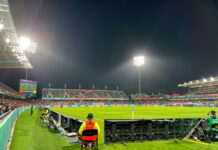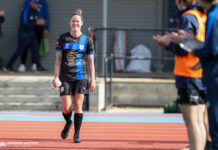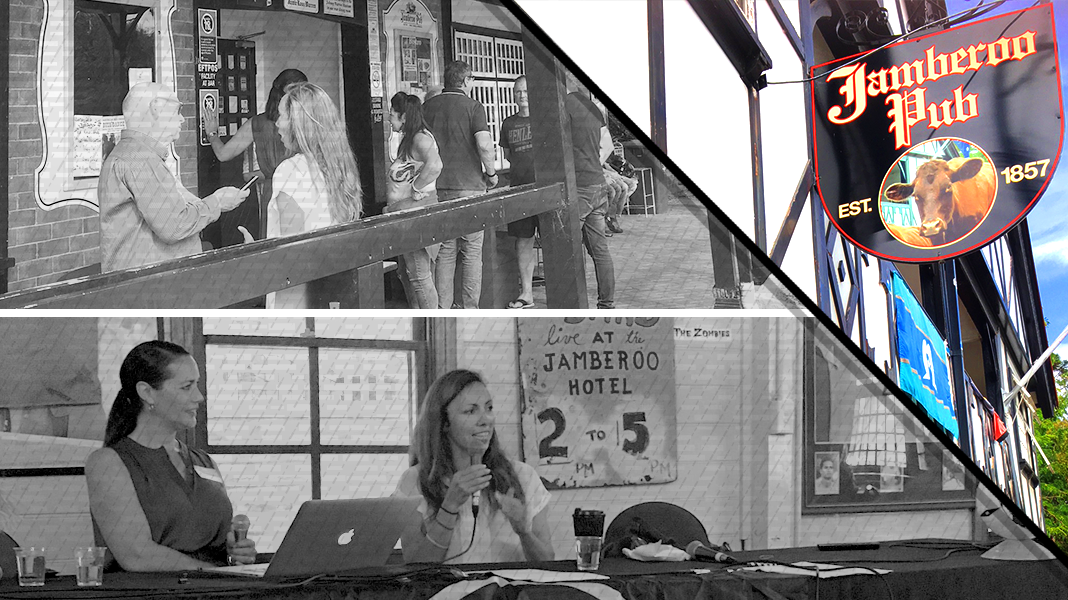
Who doesn’t love a good festival, football chats, and a country pub filled with sporting memorabilia and convivial staff? Combine the three and you have the Australian Football Writers’ Festival, with its inaugural gathering held in Jamberoo on the south coast of New South Wales last month.
We football folk are a passionate lot and, as they say, football is a game of opinions. The opinions have been flowing thick and fast already this year after coaching changes, speculation about new A-League/W-League structures, and the release of the new Matildas’ Nike kit. And the comments haven’t all been kind.
So to say the recent Football Writers’ Festival at the Jamberoo Pub, home of the Johnny Warren Museum (staffed by Johnny’s brother, nephew, and a terrific crew), was an antidote to an online tirade of conflict is an understatement. Did I mention that I love festivals?
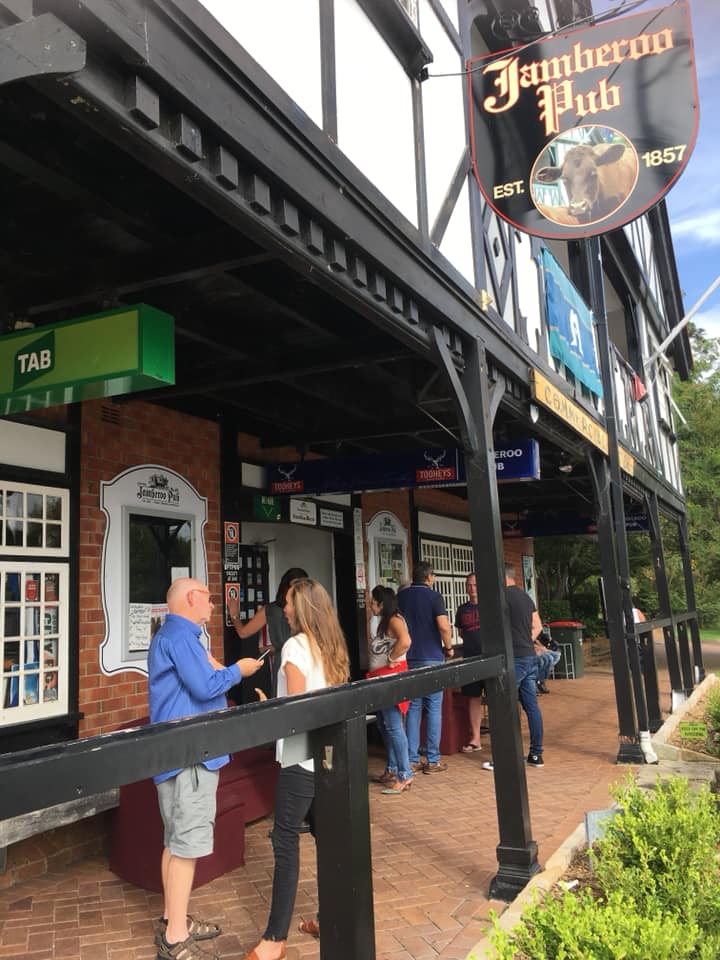
There’s something about the in-person nature of a festival. You might rub shoulders with a performer as they’re buying their first bleary-eyed coffee for the day, or you might be the last punters up at night as the venues are trying to sweep you out the door. Festivals are a real leveller. The Football Writers’ Festival was no different.
Curated, hosted, and run by Bonita Mersiades of Fair Play Publishing (she was even the scorer at the trivia night!), the festival featured an array of football aficionados from Australia, with a few notable international additions.
We see these writers, commentators, and activists on TV, hear them on the radio, read their words in the newspaper and online, and engage with them on Twitter. We might have even read their books. But, to be honest, the festival highlighted to me just how few football authors there really are in Australia.
Gwendolyn Oxenham is the author of Under the Lights and in the Dark: Untold Stories of Women’s Soccer and Finding the Game: Three Years, Twenty-five Countries, and the Search for Pickup Soccer and she directed and featured in Pelada, an award-winning documentary centered on pick-up games around the world. Oxenham spoke about playing for Santos FC in Brazil, and the stories of desperation and triumph from her team-mates around the world, including performing at the highest level while homeless.
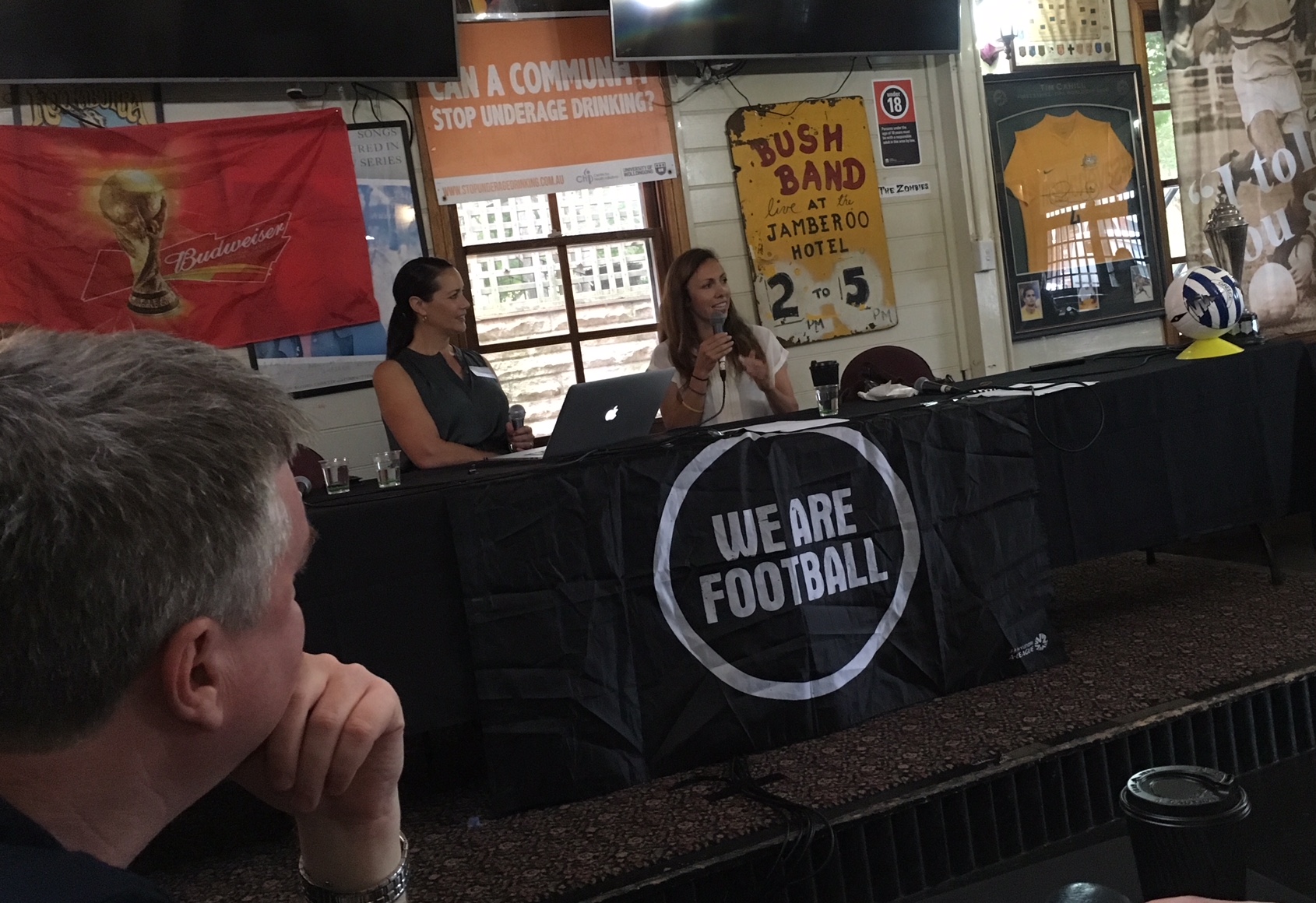
The award-winning investigative journalist and author Jens Weinrich from Germany spoke about the sometimes dangerous and lonely process of writing about international organised crime in the sporting world, the bidding process for mega-events, and about his monthly investigative magazine, Sport & Politics.
The festival kicked off with a spritely discussion between paid journos and gig-writers. There were more than a few guffaws around the room when football writer from The Age, Michael Lynch, was introduced as once saying bloggers were ‘fans with typewriters’. Prominent online writers nodded in agreement – they had been accused of that for the past decade by Lynch. Emma Kemp of the Daily Telegraph had sound advice for all – get it right the first time and check the facts, after which an amusing and contradictory conversation followed about whether outlets are chasing clicks or not.
Andy ‘Statto’ Howe and Greg Noella Werner gave a brilliant account of the game by its numbers, and were the only panel to reference the men’s and women’s national teams in equal measure. Howe’s piece showed the synergies between Australia’s population and the make-up of the men’s Australian team by way of original nationality and population centre, noting the gaps of regional Australia, indigenous representation, and the representation of recent migrants (especially from Asia).
Werner’s piece gave us a well-presented history of the women’s game internationally, including the 50 year ban on the game from 1921–1971. The Australian women’s team was featured from the 70s onwards, including an impromptu stand-up from the first female coach Trixie Tagg, who had also been a member of an Australian XI.
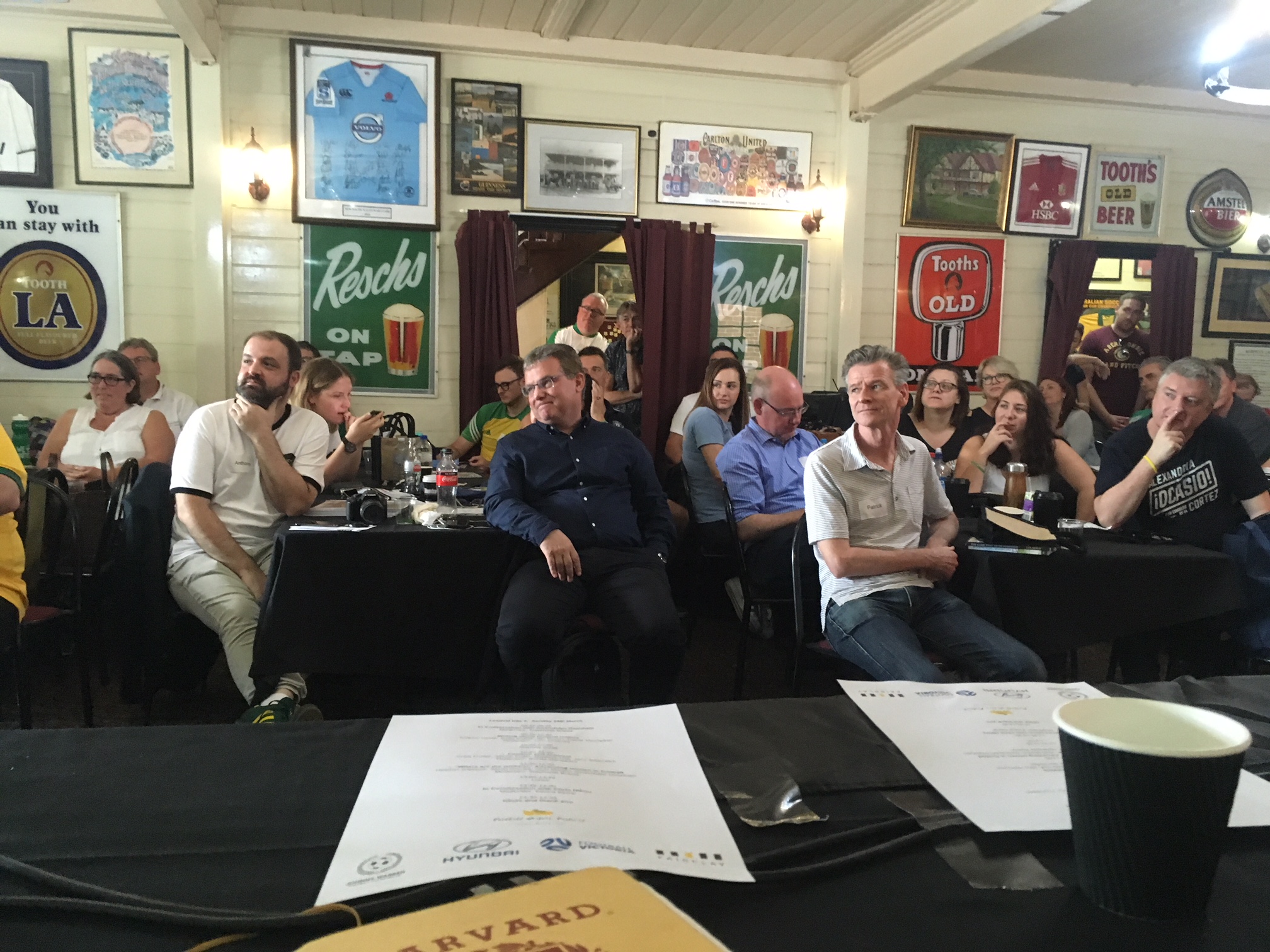
The evening session in the beer garden was equal parts hilarious and inspiring. We heard the hilarious banter between Noddy Alston (anyone heard of the Alston turn?!) and Jim Fraser of the 1974 Socceroos, Heather Garriock’s reminiscing about her heroes in Sun Wen and Mia Hamm and recognising that the current players will be talking about Sam Kerr in this vein in 20 years time, Kimon Taliadoris’ passionate vision of connecting fans and teams again in the stadium, and 1956 Olympian Ron Lord’s missive to modernise the game of football in Australia.
The trivia night, MC’d by head of Fox Football Murray Shaw, was a raucous affair, and quite possibly the most ethical trivia night I’ve ever attended. Google was clearly not required in a room full of such intellect! Proving that diversity provides better performance outcomes, teams with a spread of age groups, genders, and ethnicities fared the best. Congrats to the table of paid journos who took the spoils. We were a proud table of amateurs and authors, coming in a close second, led by the inimitable Matthew Hall and inspired by our namesake Sam Kerr (United).
Day two gave us insights to writing about football history. The secret to this genre, it seems, is the magnificent resource Trove.NLA.gov.au, described by one of the authors as the ‘best online search in the world’, and ‘a national treasure’ by Trevor Thompson.
‘Football and Activism’ was a cracking session with the iconic Craig Foster of SBS who played a key public role in the return of Hakeem al-Araibi to Australia after he was unlawfully arrested in Thailand. The panel agreed that activism needs a collective effort from a wide range of people in order to be successful.

The ‘Where Are The Women?’ session was on next, and in some respects was a continuation of the activism conversation from the previous session. Currently, there is a dearth of books about women’s football in Australia, but with the soon-to-be-released Matildas’ Encyclopedia, and a fair representation of women’s football aficionados in the room, it won’t be long til this genre fills a space on the shelves.
A question and answer session with Emma Kemp and Chris Nikou, FFA Chair, closed the festival. In the post-match run-down with other punters, there was overwhelming positivity about the Chair’s showing. He discussed needing to work ‘within the spheres of influence’ and show solidarity with the ASEAN nations when asked about the AFC presidential voting. He spoke about wanting to create the best fan experience and sticking to the core ingredients of the game, engaging with the next generation through their devices, and uniting all facets of the game for the good of the game.
When asked about the Matildas, Nikou reported that he feels the Matildas have a good environment. While recognising the impact the situation had on former coach Alen Stajcic, he acknowledged Stajcic made it clear the group was dysfunctional and couldn’t move on. He now feels the Matildas are a united group and that new coach Ante Milicic is across the sport science aspects of the game.
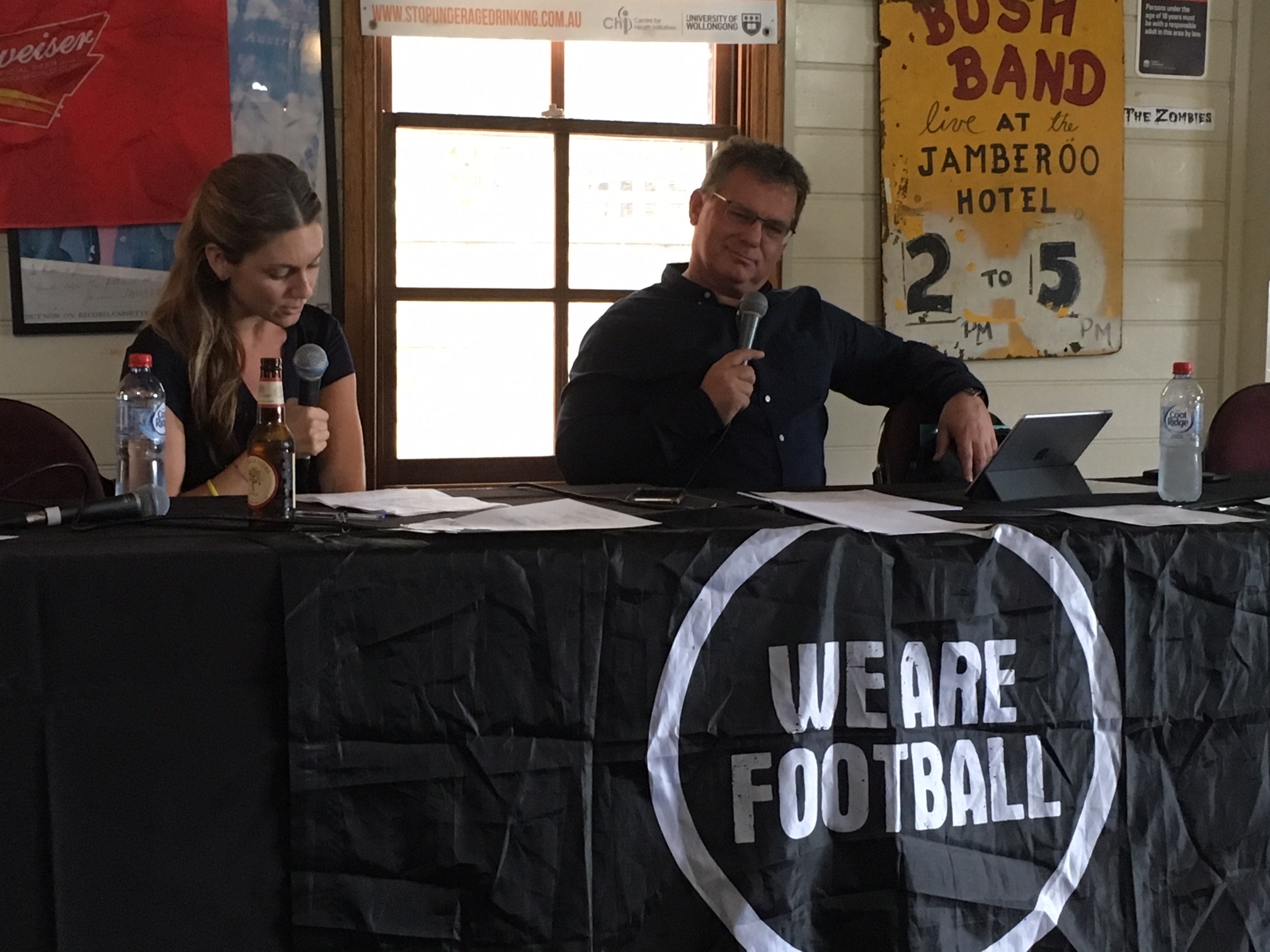
On the Leagues Working Group, Nikou said the clubs have proposed an A-League, Youth League and W-League that hang together. He explained that he wants to see a more developed outline of initiatives.
One consideration of timeframes for any relegation and promotion system in the A-League would be current licence duration. And that was a lesson to us all. By the time we all reached our homes after the end of the panel, the FFA had issued a clarifying statement, and twitter was alight with ‘feedback’ to the FFA Chair about his ‘proposed timeframe’ for relegation and promotion. In other words, what had seemed an innocuous and sensible comment in the context of the discussion had been become a story.
It certainly made me think that us football consumers would do well to get offline and catch up in-person a little more often. For an inaugural event, Football Writers’ Festival Australia provided a meaningful and inclusive way to meet up with other journalists and punters who share a passion for football and discuss the state of the game. I’m already looking forward to next year’s event – maybe I’ll see you there.
Note: I was a panellist at the festival and some costs were borne by the organisers.





